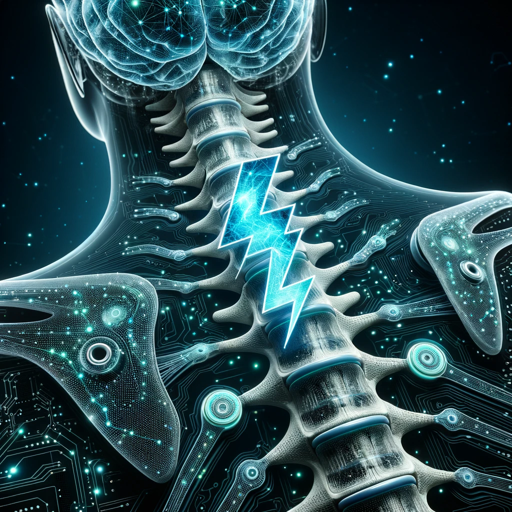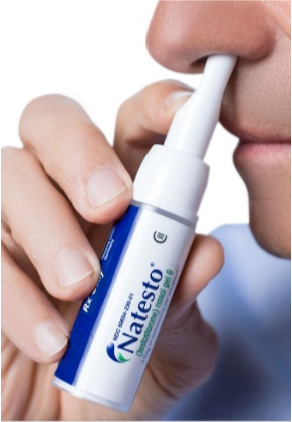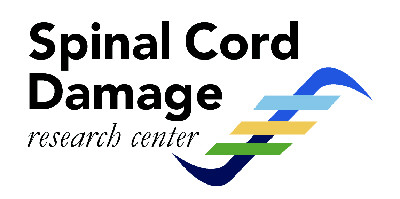NeuroRecovery Research
Our goal is simple yet challenging:
To improve voluntary movement of weakened parts of the body.
To improve quality of life for people with spinal cord injury (SCI) and amyotrophic lateral sclerosis (ALS).

Our Research
Most individuals with injury or disease of the spinal cord have residual nerve connections, even if they have trouble moving their muscles.
To strengthen these connections, we conduct multiple studies using different combinations of physical exercises, magnetic stimulation, electrical stimulation, ischemic conditioning, and medications.
APPROACH
We use the principle of ‘Fire Together, Wire Together’: When nearby nerves fire together repeatedly, connections between those nerves strengthen. The ability to change nerve circuit function is called “neuroplasticity”. Neuroplasticity helps nerve circuits rewire and reconnect, leading to improved movement and control below the injury.
Our research interventions:
- Electrical spinal stimulation
- Magnetic brain stimulation
- Targeted physical exercises
- Ischemic pre-conditioning
- New uses for old drugs
- And more…
Our cutting-edge technologies:
- Transcranial magnetic stimulation (TMS)
- Electroencephalography (EEG)
- Electromyography (EMG)
- Infrared-guided neuronavigation
- Computerized posturography
- And MUCH more…
OUR VALUES
- Communicate openly with people in the community with SCI, ALS, and other disorders.
- Share data and collaborate openly with other researchers.
- Continually foster the recruitment and development of new and young researchers.
Our group is part of the James J. Peters VA Spinal Cord Damage Research Center. The Center has a thriving mix of senior and junior research faculty and staff, spanning specialties from neurology, rehabilitation, physiology, endocrinology, gastroenterology, engineering, and molecular science.
We are open to enrollment of Veterans AND non-Veterans for our clinical research studies.
Call for participants!
The Neurorehabilitation Program currently has several studies seeking volunteers.
Veterans and non-Veterans are eligible for our research studies.
People with spinal cord injury, amyotrophic lateral sclerosis, or uninjured volunteers are welcome to participate in our studies.
For information about specific research projects and eligibility criteria please check out our studies below:
STUDY TITLE: Spinal cord associative plasticity to improve hand control
Principal Investigator: Noam Y. Harel, M.D., PhD.
PI email: Noam.Harel@va.gov
PI work: (718) 584-9000 ext 1742
Study Research Coordinator(s)
Francisco Castano : Francisco.Castano@va.gov
Sig Sigafose : Caitlyn.Sigafose@va.gov
Finn Fox
(718)584-9000 ext. 3128
STUDY TITLE:
Spinal cord associative plasticity to improve hand control
ClinicalTrials.gov
Identifier: NCT05163639
SUMMARY OF STUDY:
The purpose of this study is to test the safety and tolerability of a combination of magnetic stimulation of your brain with electrical stimulation over your cervical spinal cord.
INCLUSION CRITERIA:
- Age 18-80,
- chronic cervical SCI occurred greater than 12 months prior to study.
- Some muscle movement of hand and fingers
- No history of epilepsy, cardiac arrhythmia,
- no implanted stimulator/pacemaker
- OR healthy volunteer

DURATION
- 3.5-4 hours/visit Up to 9 visits
- Reimbursement $75/visit
Finding the Best Combination of Brain and Spinal Cord Stimulation with Hand Training after Spinal Cord Injury
Principal Investigator: Noam Y. Harel, M.D., PhD.
PI email: Noam.Harel@va.gov
PI work: (718) 584-9000 ext 1742
Study Research Coordinator(s)
Francisco Castano : Francisco.Castano@va.gov
Sig Sigafose : Caitlyn.Sigafose@va.gov
Finn Fox
(718)584-9000 ext. 3128

STUDY TITLE:
Finding the Best Combination of Brain and Spinal Cord Stimulation with Hand Training after Spinal Cord Injury
ClinicalTrials.gov
Identifier: NCT06104735
SUMMARY OF STUDY
Follow-up of the ‘Spinal Cord Associative Plasticity (SCAP)’ study: You will undergo various parameters of brain and cervical spinal cord stimulation. We will determine your optimal individualized method for delivering repetitive SCAP along with functional hand exercises with the goal of obtaining a lasting effect of at least 24 hours. This will involve a multi-phase program requiring visits to occur over roughly 6-10 months.
INCLUSION CRITERIA
- Age 18-80,
- chronic cervical SCI occurred greater than 12 months prior to study
- Some muscle movement of hand and fingers No history of cardiac arrhythmia,
- no implanted stimulator/pacemaker
DURATION
- 3.5-4 hours/visit
- 53 visits
- Roughly 6-10 months
- Reimbursement Screening and intervention visits: $75 each
- Exercise and practice visits: $50 each
- Up to $3,350 if all 53 visits are completed
STUDY TITLE: The role of pharmacological agents in restoring neuronal excitability after chronic SCI
Principal investigator: Lynda M. Murray, Ph.D.
PI Email: Lynda.Murray@va.gov
PI Work: (718) 584-9000 ext. 5426
Study Research Coordinator(s)
Francisco Castano : Francisco.Castano@va.gov
Sig Sigafose : Caitlyn.Sigafose@va.gov
Finn Fox : (718)584-9000 ext. 3128

DURATION
- Ranging from 2.5 – 4.5 hrs
- 7 visits
- Reimbursement $50/visit 1
- $25/visit 2 + 3
- $100/visit 4 – 7
STUDY TITLE
The role of pharmacological agents in restoring neuronal excitability after chronic SCI
ClinicalTrials.gov
Identifier: NCT05708274
| SUMMARY OF STUDY |
This study focuses on the short-term effects of single-dose drugs on neural excitability in individuals with weak wrist and finger muscles after cervical SCI. Each drug tested has already gained U.S. Food and Drug Administration (FDA) approval for use in other conditions.
INCLUSION CRITERIA |
- Age 18-80
- SCI occurred greater than 12 months prior to study Cervical SCI Some hand function required
- Other eligibility criteria will be screened in person to make sure it is safe for you to participate
- Age 18-80
- SCI occurred greater than 12 months prior to study Cervical SCI Some hand function required
- Other eligibility criteria will be screened in person to make sure it is safe for you to participate
STUDY TITLE: The Role of Androgens in Neurophysiological and Autonomic Function in Male Veterans with Spinal Cord Injury
Principal investigator: Jacob A. Goldsmith, PhD
PI Email: Jacob.Goldsmith@va.gov
PI Work: (718) 584-9000 ext. 5129
Study Research Coordinator(s)
Ian Paez (718)584-9000 ext. 1732
Finn Fox (718)584-9000 ext. 3128

DURATION
- Hours vary per visit, around 5 hours each
- Up to 4 visits
- Reimbursement $20/hr (maximum of $100 for Visit 1)
- $20/hr (maximum of $300 for Visits 2-4)
- Travel for SCI ($50/visit)
STUDY TITLE
The Role of Androgens in Neurophysiological and Autonomic Function in Male Veterans with Spinal Cord Injury
ClinicalTrials.gov
Identifier: NCT06130449
SUMMARY OF STUDY
This study focuses on the short-term effects of a single dose of intranasal testosterone replacement therapy on neural excitability and cardiovascular function in men with SCI. The intranasal TRT has already gained FDA approval for other conditions.
INCLUSION CRITERIA
- Age 18-80
- SCI occurred greater than 12 months prior to study, or healthy, non-injured participants
- No history of multiple sclerosis, Parkinson’s disease, or epilepsy
- Other eligibility criteria will be screened in person to make sure it is safe for you to participate
